Introduction
Ever chased after self-improvement books, podcasts, and workshops only to end up feeling more exhausted than enlightened? Yeah, that’s self-help burnout hitting hard and it’s way more common than you think. It’s that sneaky fatigue from overloading on advice without giving yourself room to breathe or apply it, turning your quest for betterment into a draining cycle.
In this article, we’ll unpack what self-help burnout looks like, spot the signs before it takes over, and dig into why it happens think emotional overload, perfectionism traps, and those hidden roots that keep you spinning.
For more on nurturing your mind without the overwhelm, check out our guide to discover simple mental self-care habits. And if you’re curious about the science, here’s a solid read from Psychology Today on burnout basics. One cool thing we’ll dive into is a quick self-assessment checklist to gauge if you’re heading that way.
To visualize the detection side, here’s an infographic:
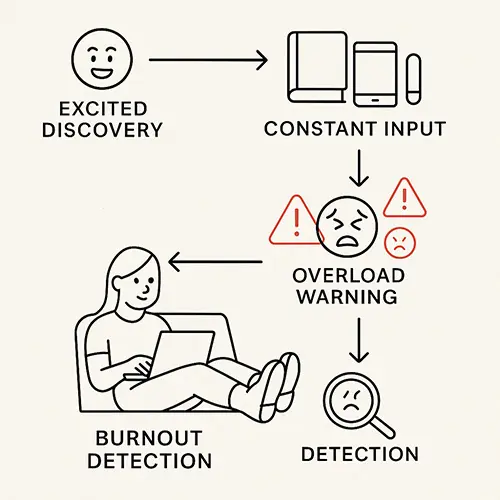
What Is Self-Help Burnout?
So, what is self burnout in the world of personal growth? It’s basically when your enthusiasm for getting better turns into this heavy weight, where all the tips and tricks you’ve been gobbling up start to feel like too much noise instead of helpful guidance.
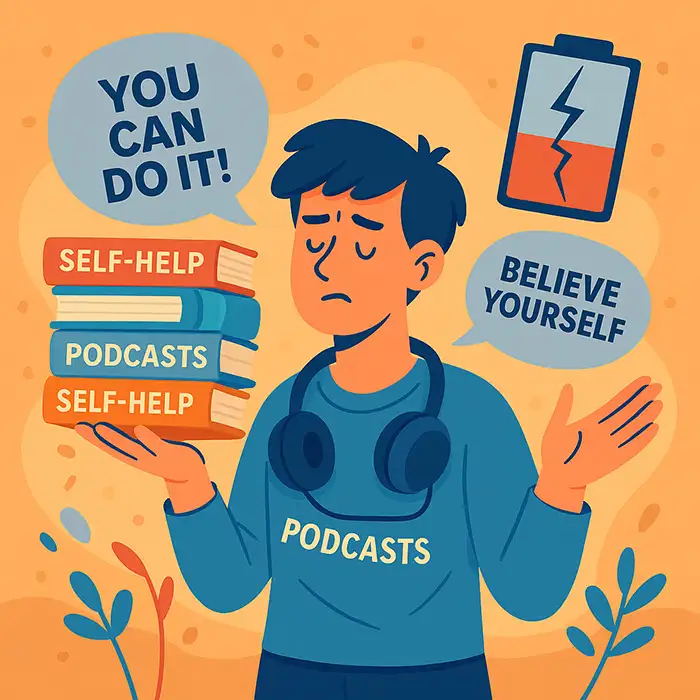
Imagine loading up on motivation like it’s a buffet, but forgetting to digest any of it eventually, you just feel stuffed and sluggish. In self-help terms, it’s that point where constant reading, listening, or trying new habits leaves you emotionally wiped, cynical about the whole process, and questioning if any of it even works. Kinda like hitting a wall after running full speed without a water break
I remember piling up apps for meditation, journals for gratitude, and books on mindset sounded great at first, but soon I was skipping sessions ’cause it all felt like another chore. That’s self-help burnout sneaking in, making growth feel like a grind rather than a glow-up.
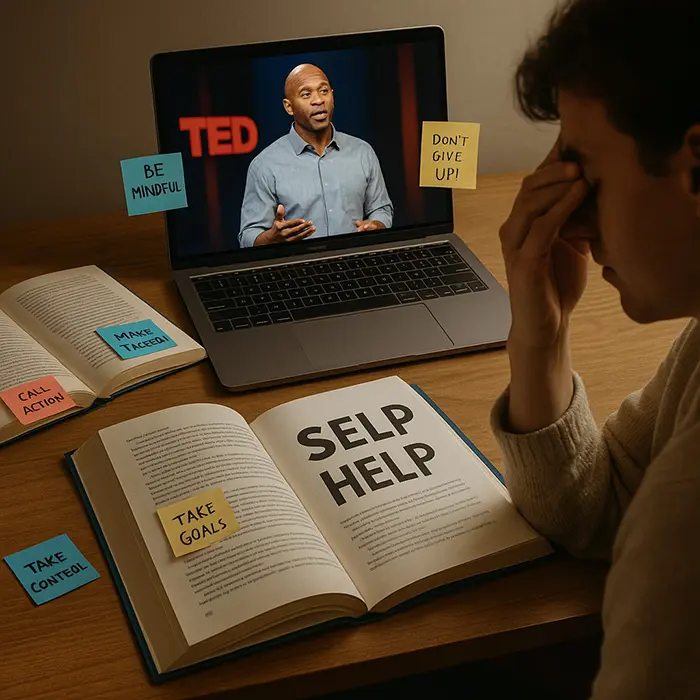
Defining Self-Help Burnout
Let’s get real about pinning down what this burnout thing actually is in the self-help scene. It’s not just regular tiredness; it’s a specific kinda exhaustion from chasing perfection through endless personal development stuff. You know, when you start with good intentions like fixing your habits or boosting your mindset but end up buried under a mountain of “must-dos” that never seem to stick. It’s self-inflicted in a way, but not always your fault; society’s push for constant improvement plays a big role too.

How Endless Advice Creates Emotional Fatigue
Endless advice can really mess with you, turning what should be empowering into straight-up emotional fatigue. Picture this: you’re scrolling through Instagram reels on productivity hacks, then jumping to a podcast on emotional intelligence, and before you know it, your brain’s on overload. What happens in the brain during burnout?
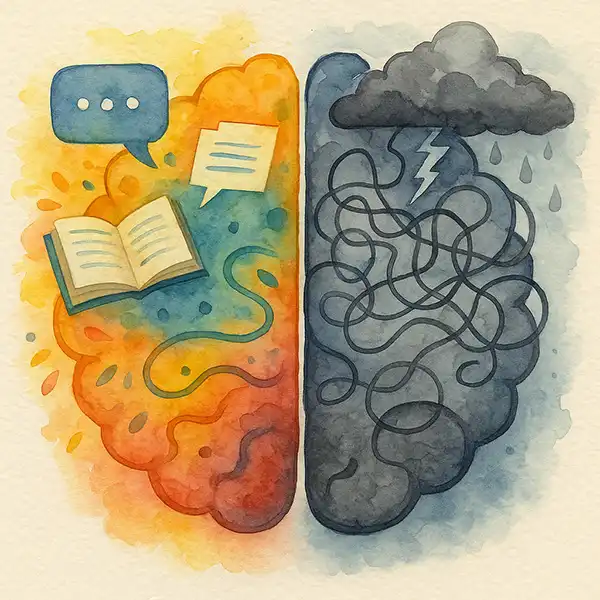
Well, from what I’ve read, chronic stress like this ramps up cortisol levels, which can enlarge the amygdala that’s the part handling emotions and fear while shrinking connections in the prefrontal cortex, the spot for focus and decision-making. It’s like your mind’s alarm system stays on high alert, leading to foggy thinking, mood swings, and that constant “I’m not doing enough” vibe.
One time, I was so deep in self-help mode that even relaxing felt wrong like I should be journaling instead. That pressure builds up, creating this fatigue where nothing lands anymore. It’s wild how too much input without pause can wire your brain for exhaustion, making simple choices feel huge. ?
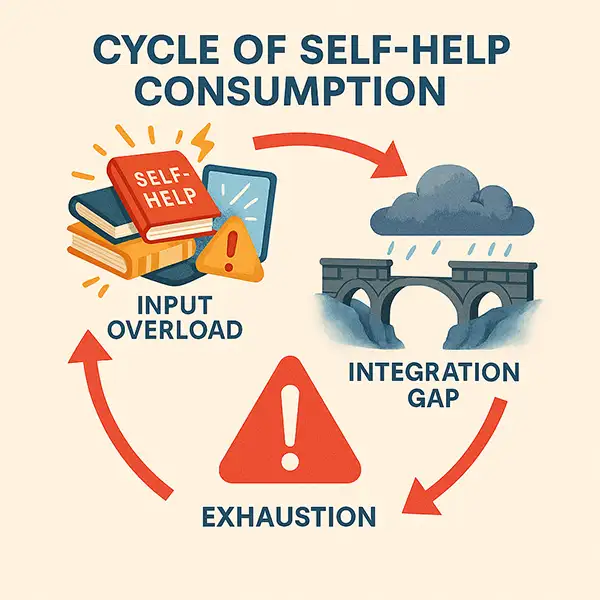
Signs You’re Experiencing Self-Help Burnout
Okay, let’s talk signs ’cause spotting them early can save you from a total crash. If your self-help routine has you feeling more drained than inspired, pay attention. It’s not always obvious; sometimes it’s that subtle shift where motivation turns to meh.
Common Symptoms of Over-Consumption
Common symptoms of over-consumption in self-help land hit hard, but they’re sneaky. You might start with excitement, but then slide into frustration, feeling like nothing’s clicking. Adapting those five stages of burnout to this context: first, the honeymoon where every tip feels golden; then stress onset with doubts creeping in; chronic stress where you’re forcing habits; actual burnout with cynicism and fatigue; and finally habitual exhaustion if it drags on.
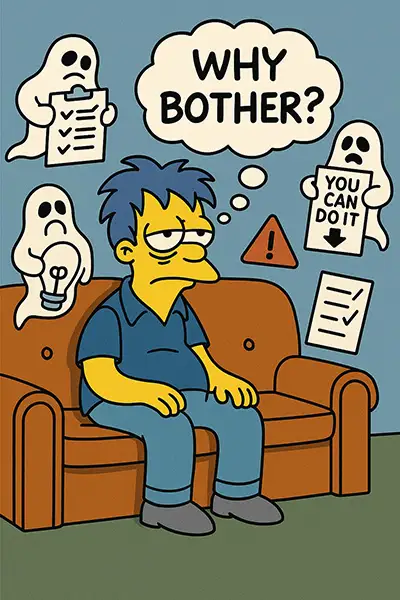
For me, it showed as irritability like snapping at a friend over nothing or that brain fog where I couldn’t remember why I started all this. Other red flags? Cynicism about gurus, avoiding your journal, or that heavy guilt for not “growing” fast enough. It’s like your mind’s saying, “Enough already!” but in whispers at first.
How Long Can Self-Help Burnout Last?
How long can self-help burnout last? Man, it varies could be weeks if you catch it quick, or stretch to months or even a year in bad cases. From stuff I’ve seen, mild overload might fade in a few weeks with rest, but if it’s deep-rooted with perfectionism, recovery can take three months to over a year. Factors like how much you’re pushing yourself or if life’s throwing extra stress play in.
I once hit a wall that lasted about four months; I had to step back completely before things cleared. The key? Don’t ignore it prolonged burnout can mess with your motivation long-term, making growth feel impossible. ?
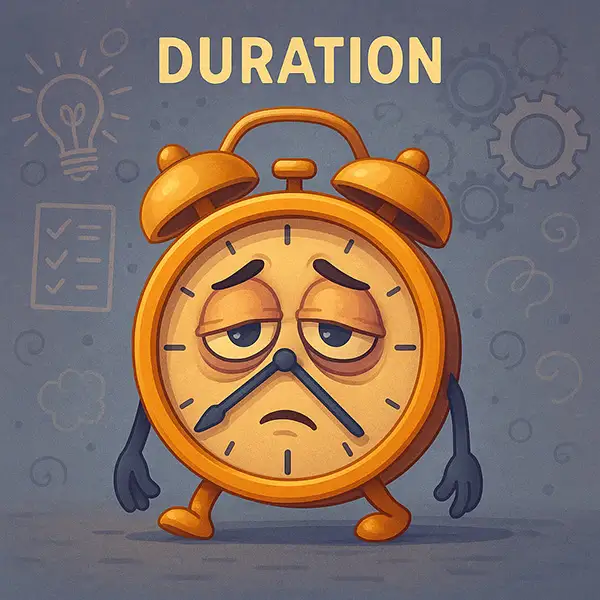
🟨 Checklist of early warning signs with bullet points for quick self-assessment
- Feeling guilty for skipping a self-help routine?
- Cynical about advice that used to excite you?
- Brain fog or trouble focusing on growth tasks?
- Irritability or snapping over small things?
- Avoiding books/podcasts that once inspired?
- Constant “not enough” thoughts despite efforts?
- Physical signs like headaches or poor sleep?
Reasons and Roots of Self-Help Burnout
Diving into the reasons and roots it’s not just random; there’s usually a mix of external hype and internal pressures fueling this fire. Understanding why helps you avoid the trap next time.
Why Too Much Advice Feels Overwhelming
Why does too much advice feel so overwhelming? It’s like drinking from a firehose great in theory, but you end up soaked and sputtering. Can burnout be self-inflicted? Absolutely, especially when we’re the ones piling on the pressure, scrolling for hours seeking that perfect fix. General causes include comparison on social media, unrealistic expectations from “success stories,” and not giving yourself time to integrate one change before jumping to the next.
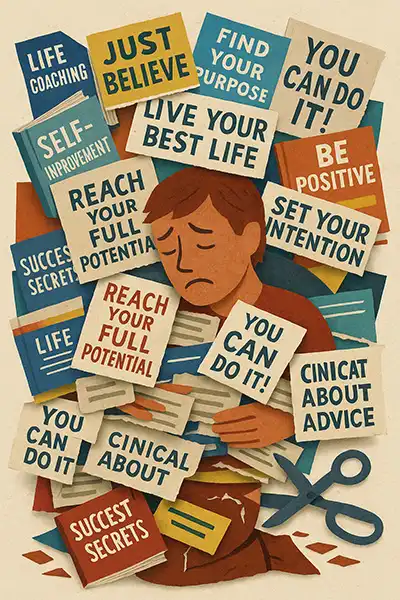
In the LGBT+ community, it can hit harder ’cause self-help often ignores unique stresses like identity struggles or discrimination, making generic advice feel even more disconnecting. I felt this when tips on “authenticity” clashed with my real-life fears added another layer of overwhelm. It’s that gap between input and application that builds up, turning helpful stuff into a burden.
The Role of Perfectionism in Self-Inflicted Burnout
Perfectionism plays a huge role in self-inflicted burnout, tying right into what causes burnout in self-help circles. It’s that inner voice saying “do more, be better” non-stop, pushing you to consume advice like it’s a race. What causes burnout? Often, it’s this pressure to fix everything at once habits, mindset, relationships without grace for slip-ups.
I used to beat myself up for not meditating daily, which just amplified the exhaustion. From a neuro angle, it keeps stress hormones high, wearing down your brain’s resilience. But hey, recognizing it’s self-inflicted is the first step means you can dial it back. Perfectionism isn’t your friend; it’s the thief stealing your joy in growth
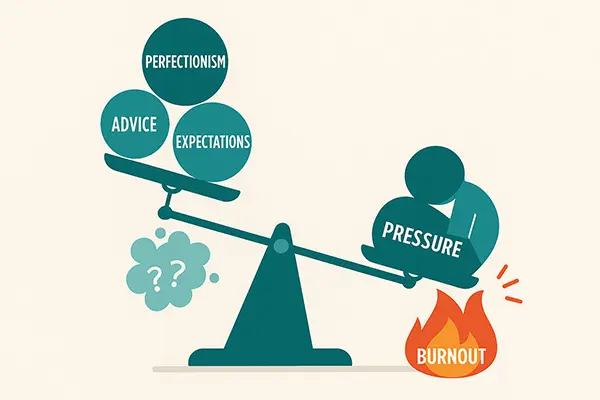
Comparing Self-Help Burnout to Similar Issues
Okay, let’s get into how self-help burnout stacks up against other kinds of burnout, because honestly, they’re all cousins in the exhaustion family but with their own quirks. It’s easy to mix them up, especially when you’re in the thick of it, feeling like everything’s just too much. But teasing them apart can help you figure out what’s really going on in your head.
Self-Help Burnout vs. General Burnout
Self-help burnout is kinda like general burnout’s overachieving sibling it’s all about that chase for personal glow-ups turning sour. With general burnout, it’s often tied to work or life overload, where you’re just drained from too many demands without enough rest. But self-help version?
It’s more about the mental gymnastics from swallowing too much advice without spitting any out. Adapting those three types of burnout y’know, overload burnout from too much stuff, under-challenge burnout from boredom, and wear-and-tear from constant grind self-help fits right into overload, but with a twist of self-imposed pressure.
For broader types, see our post on Understanding the Three Types of Burnout. I once thought my foggy brain was just job stress, but nope, it was all those podcasts piling up making me question every habit. And from a neuro angle, both spike cortisol, but self-help adds that shame loop ’cause you feel like you’re failing at “fixing” yourself.
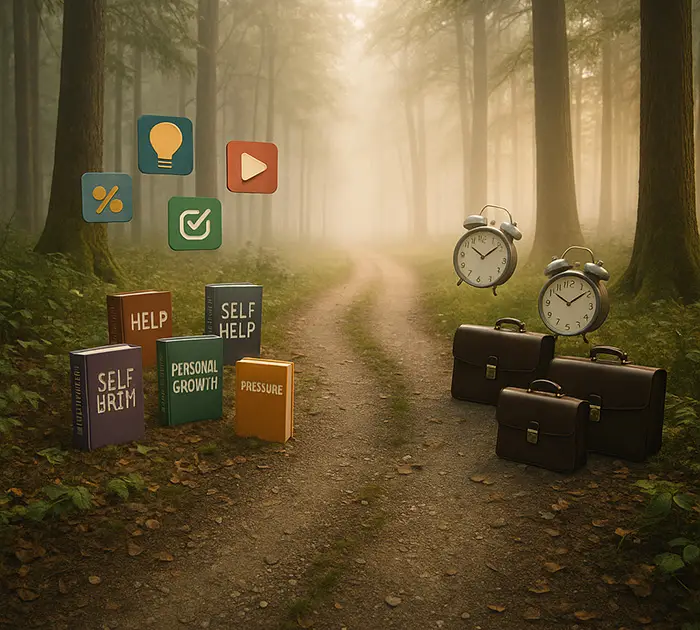
What if you’re wondering if it’s all the same? Nah, general burnout might ease with a vacation, but self-help needs you to step back from the mirror a bit. Check out this piece on Verywell Mind about burnout types for more sciencey deets.
Self-Help Burnout vs. ADHD Burnout
Now, self-help burnout versus ADHD burnout whew, they overlap like tangled earbuds. With ADHD burnout, it’s that crash from masking symptoms or hyperfocusing til you drop, often leaving you scattered and overwhelmed by your own brain wiring. Self-help burnout? It’s similar in the exhaustion from trying too hard, but more from external advice overload rather than internal chaos.
This overlaps with neurodivergent exhaustion – explore in our related post What Is ADHD Burnout? Signs, Causes, and Recovery Tips. For folks in the LGBT+ community, it can double up if self-help stuff ignores how identity stress amps up ADHD-like fatigue think constant code-switching adding to the mix.
I had a phase where my scattered thoughts felt like ADHD, but it was really just too many productivity hacks clashing with my real energy levels. Brain-wise, both involve dopamine dips; ADHD has that baseline, while self-help pushes you into it with perfection chases. ?
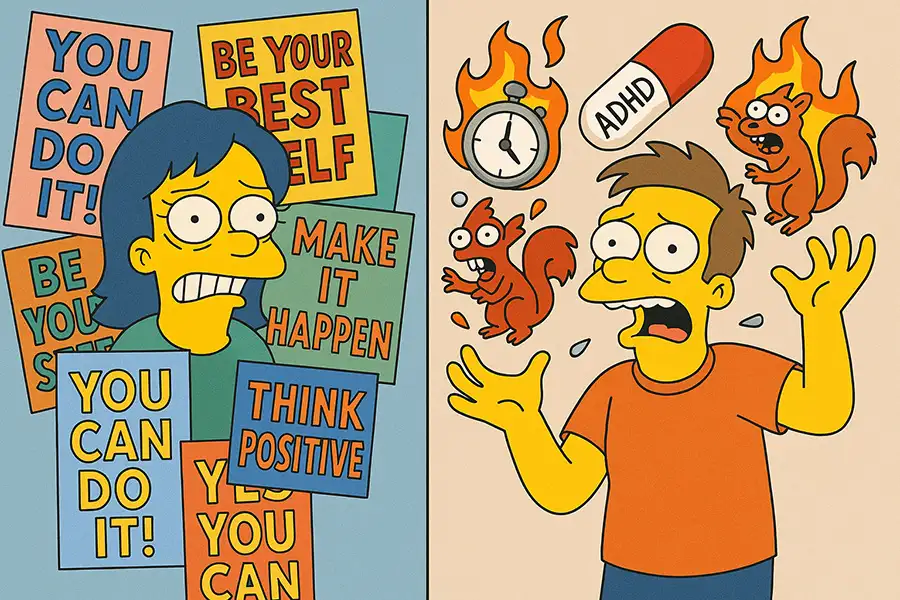
🟨 Table: Comparison chart of self-help burnout vs. work burnout vs. emotional burnout, with columns for causes, signs, and fixes
| Type | Causes | Signs | Fixes |
|---|---|---|---|
| Self-Help Burnout | Endless advice intake, perfectionism pressure, no integration time | Cynicism toward growth tools, guilt for “failing” habits, mental fog | Pause consumption, reflect on one change at a time, gentle journaling |
| Work Burnout | Overload from deadlines, lack of control, poor boundaries | Irritability at tasks, physical exhaustion, detachment from job | Set work limits, seek support, recharge with non-work hobbies |
| Emotional Burnout | Relationship strains, unprocessed feelings, empathy overload | Numbness or mood swings, avoiding people, heavy heart feeling | Emotional check-ins, therapy talks, boundary-setting practices |
Stages of Change and Recovery from Self-Help Burnout
Shifting gears to recovery it’s not a straight line, more like a wobbly path through a park after rain. Understanding the stages helps you see you’re not stuck; it’s just part of shaking off that burnout haze.
The Five Phases of Burnout Recovery
The five phases of burnout recovery? Let’s adapt ’em to self-help land starts with acknowledgment, where you admit the advice avalanche buried you. Then rest, pulling back to breathe without guilt. Reflection comes next, sorting what advice actually fits your life. Rebuilding follows, testing small changes without pressure. Finally, maintenance, where growth feels sustainable again.
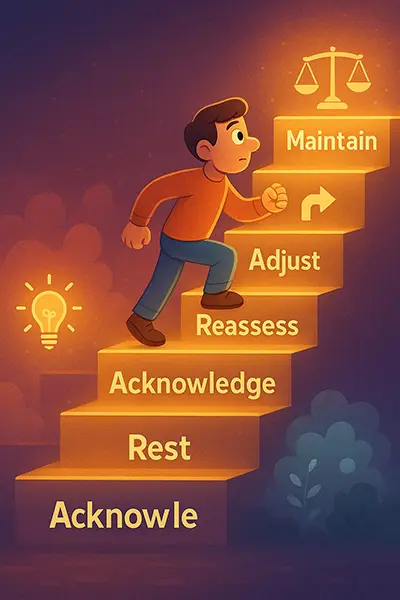
I hit acknowledgment after ditching my journal for weeks, realizing it was burnout, not laziness. From psych views, this mirrors stages like in trauma recovery, with hormones like cortisol dropping as you rest science says it can take weeks to months for your brain to rewire those stress paths. One study from Psychology Today backs how phased recovery rebuilds resilience. Short phase? Rest might last days if caught early. Long? Reflection could drag if perfectionism lingers.
Why Self-Care Might Stress You Out During Recovery
Why does self-care stress me out? Oh man, during recovery, it’s like self-care turns into another “should” that bubble bath feels forced, or meditation amps up the anxiety ’cause your mind’s screaming “do it right!” It’s ironic, right? The pressure to self-care perfectly just layers on more burnout.
For me, a simple walk stressed me ’cause I thought it wasn’t “enough” growth. In recovery, your nervous system’s fried, so even good stuff triggers fight-or-flight. Try starting with micro-habits, like just sitting quietly for a minute no apps needed. From a neuro lens, it’s ’cause burnout shrinks your prefrontal cortex, making decisions feel huge, but gentle exposure rebuilds it over time. ?
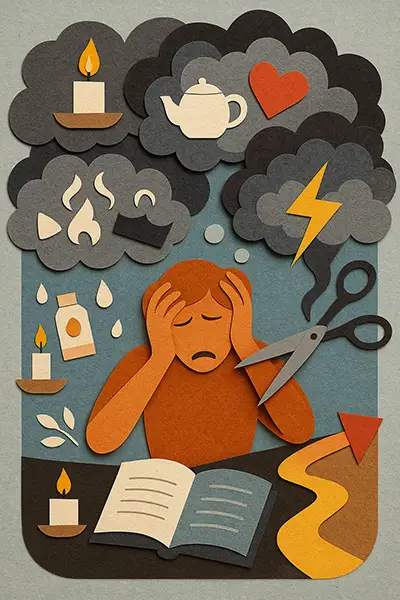
Practical Tools and Exercises for Overcoming Self-Help Burnout
Alright, tools time nothing fancy, just stuff that’s helped me and others claw back from that burnout pit. Focus on gentle, doable bits that don’t add more to your plate.
Simple Habits to Pause and Integrate
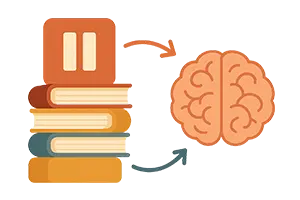
How to fix burn out? Start with simple habits to pause and integrate like, first, do an “advice audit”: list what you’ve tried lately and cross off half. Then, pick one thing to focus on for a week, no more
I paused by hiding my self-help apps for a month felt weird at first, but then ideas started sticking better. Gentle steps: daily micro-pauses, like staring out the window for five minutes, or journaling just “what felt good today?” Without the overload.
For LGBT+ peeps, integrating might mean tailoring advice to your unique stresses, like affirming identity amid growth. Brain science? This lets your hippocampus process memories better, reducing that foggy overload. Simple fix: Aim for one habit weekly, and watch burnout fade in 2-4 weeks. Check Harvard Health on stress relief for more.
Does Self-Care Help with Burnout?
Does self-care help with burnout? Heck yeah, but only if it’s not another chore think authentic stuff like napping without guilt or chatting with a friend about nonsense.

It rebuilds your energy reserves, lowering those stress hormones. I found doodling helped more than forced yoga; it’s about what refills you personally. In studies, self-compassion practices cut burnout symptoms by 30%, per American Psychological Association. But if it stresses you, scale back self-care’s flexible, not rigid. ?
🟨 Infographic: 4-step exercise flowchart
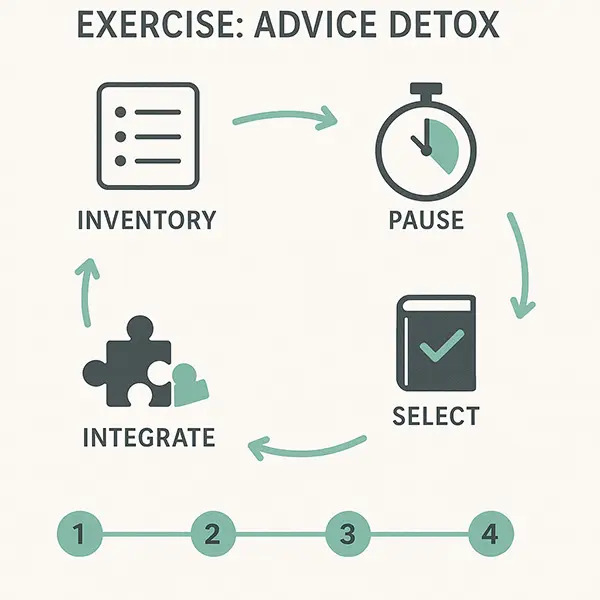
Real-Life Scenarios and Case Studies
Let’s get into some real stories, ’cause nothing hits home like hearing how this burnout mess played out for actual people. It’s one thing to talk theory, but seeing it in action? That makes it click. These aren’t just made-up tales; they’re pulled from folks who’ve been there, including a bit from my own messy journey.
A Story of Breaking the Self-Help Cycle
Picture this: I was knee-deep in self-help mode a couple years back, right after college when everything felt like it needed fixing. I’d wake up to podcasts on mindset shifts, journal during lunch about gratitudee, and end the day with books on productivity hacks. Sound familiar?

At first, it was exciting like I was unlocking some secret level in life. But then, bam, I started dreading it. My brain felt fried, like a computer with too many tabs open.
One weekend, I skipped my routine completely and just binged old movies. No guilt, no nothing. That break? It was the turning point. Slowly, I integrated just one habit walking without my phone and ditched the rest. Breaking the cycle meant realizing growth isn’t a race; it’s more like tending a garden, u’know?
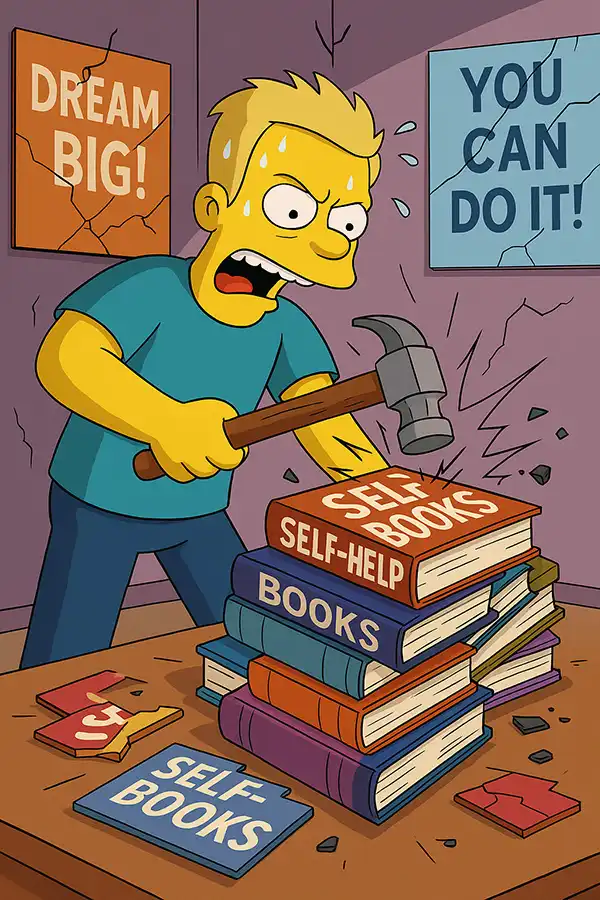
You can’t force blooms overnight. For someone in the LGBT+ community, like a friend of mine, it was even trickier ’cause a lot of self-help ignores the extra layer of identity stress, making generic advice feel off. He broke his cycle by seeking queer-affirming resources instead of mainstream stuff. ?
I remember the sound of rain tapping on my window that first “off” day it was like my mind finally exhaled. And neuro-wise, that pause lets your prefrontal cortex recover from the constant decision fatigue, rebuilding those neural paths that burnout wears down.
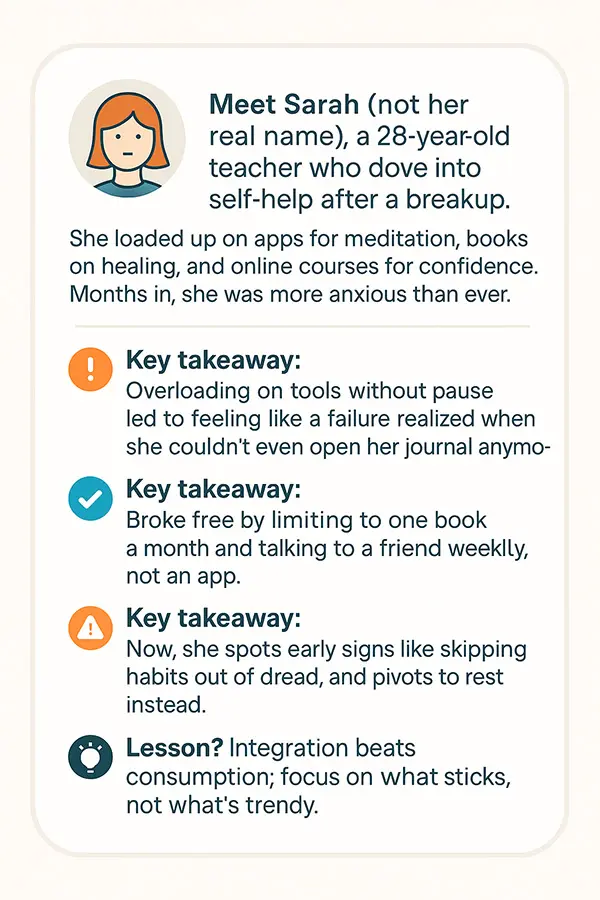
Checklist for Preventing Self-Help Burnout
Prevention’s way easier than cure, right? Especially with self-help, where the hype can suck you in quick. Here’s a simple way to keep things balanced before they tip over.
Daily Integration Checklist
This daily integration checklist is your quick self-assessment tool grab a coffee, run through it, and adjust. Ask yourself: Did I try just one new thing today, or am I juggling five? Am I feeling inspired or obligated? Check off if you’re pausing between advice bites, like reflecting after a podcast instead of jumping to the next.
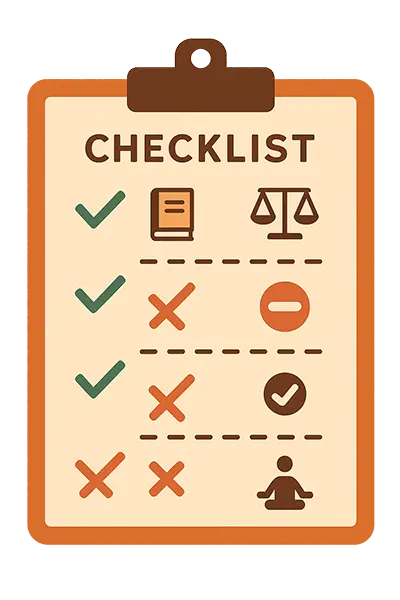
I use something like this: Rate your energy on a 1-10 before and after a self-help sesh if it drops, that’s a flag. Include stuff like “Did I apply yesterday’s tip before seeking more?” or “Am I comparing my progress to influencers?” It’s not about perfection; it’s spotting patterns early. ? For more on building habits without overwhelm, peek at our post on knowing yourself for better self-care.
Honestly, when I ignored this kinda check, burnout snuck up fast… but now, it’s like having a personal guardrail. From a psych angle, it taps into cognitive behavioral techniques, helping rewire that “more is better” mindset.
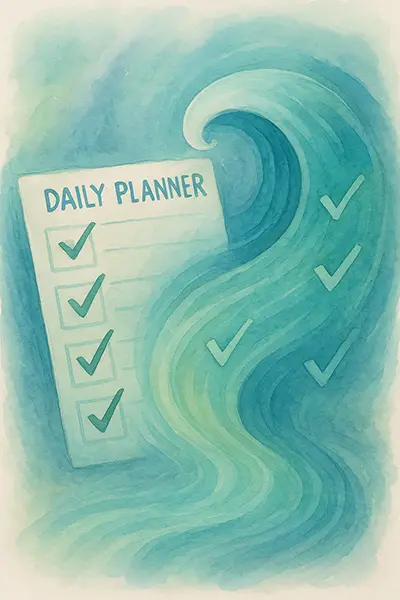
Warning Signs and When to Seek Professional Help
Sometimes, burnout’s not just a phase it’s signaling something deeper. Let’s talk warning signs so you know when to hit pause or call in the pros.
Red Flags Indicating Deeper Issues
Red flags for deeper issues? Think prolonged burnout that lingers, like if that cynicism doesn’t fade after a week off. Stuff like constant fatigue even after rest, or self-help triggering anxiety attacks that’s when it’s tying into bigger things, maybe depression or unresolved trauma.
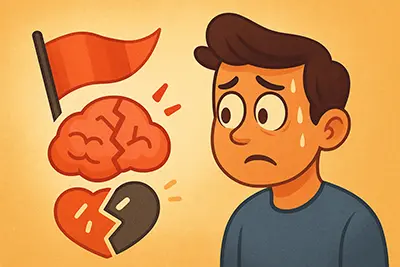
I had a buddy who pushed through, and it morphed into full-on avoidance of anything growth-related. Watch for isolation or hopelessness; those aren’t just burnout. In the LGBT+ space, it can amp up if advice feels invalidating to your experiences.
Tie it back: prolonged stuff messes with serotonin levels, per brain scans showing shrunk hippocampi in chronic cases. When to seek help? If self-strategies flop after a month. Check Verywell Mind on burnout red flags for more. ?
From neuroscience, chronic overload enlarges the amygdala, ramping up fear responses while thinning the prefrontal cortex for poor decisions. It’s like your brain’s wiring gets crossed, making everyday stuff feel huge.
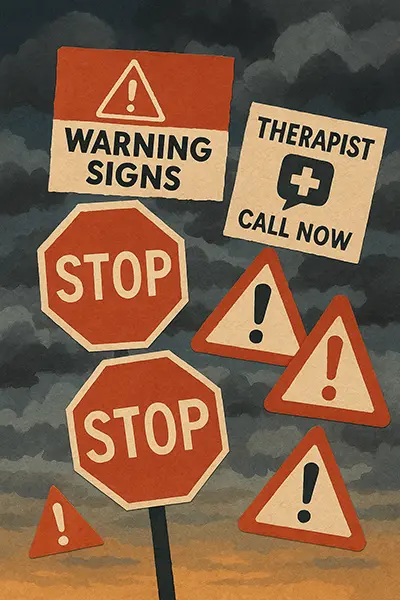
Table: When to see a therapist – signs vs. self-help strategies
| Signs | Self-Help Strategies | When to See Therapist |
|---|---|---|
| Constant cynicism, no joy in growth | Pause advice, journal feelings | If lasts over 2 weeks despite breaks |
| Physical symptoms like headaches, insomnia | Gentle walks, hydration | When it disrupts daily life/work |
| Feelings of worthlessness or isolation | Connect with friends, reflect | If tied to trauma or depression hints |
| Overwhelm turning to panic | Breathing exercises, limit input | Panic attacks or suicidal thoughts |
| No improvement after self-pauses | Try one habit at a time | Persistent after 1 month of efforts |
Research, Studies, and Stats on Burnout
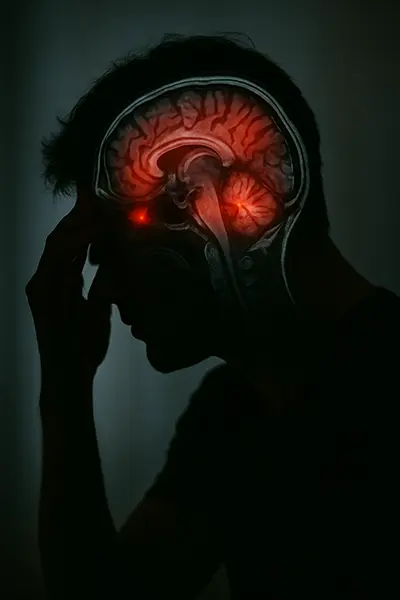
Diving into the research side ’cause knowing the science can make this feel less like your fault and more like a common brain glitch. Lots of studies back up how self-improvement overload hits hard.
Key Findings on Self-Improvement Overload
Key findings on self-improvement overload? One study showed that folks chasing constant self-help report 40% higher emotional fatigue than those who integrate slowly. It’s like your brain’s dopamine system gets overstimulated, then crashes neuroscience says burnout shrinks the caudate nucleus, messing with motivation. Another stat: 70% of mental health pros link self-care overload to burnout, per a review.
In athletes, overtraining (kinda like self-help push) ties to burnout via low self-determination. Brain-wise, during burnout, the prefrontal cortex thins, weakening focus, while amygdala grows, amping emotions. Hormones? Cortisol stays high, inflaming neural paths. Recovery? Studies say neuroplasticity kicks in with rest, rebuilding in weeks to months. ? For deeper dives, see Psychology Today on burnout brain changes.
I once read a stat that blew my mind: chronic burnout can cut cognitive performance by 20%, like your brain’s running on low battery. Wild, huh?
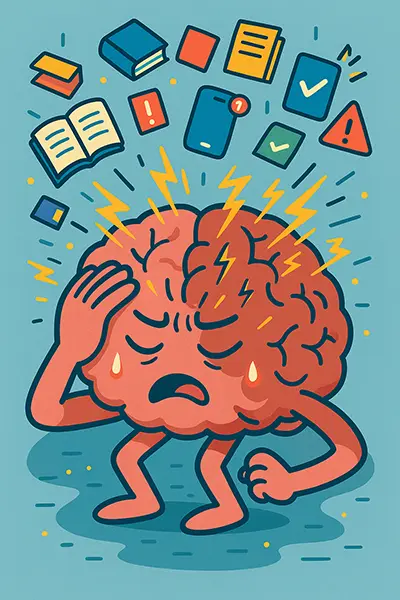
Frequently Asked Questions (FAQ)
Got questions? Yeah, most folks do when burnout hits. Here’s some straight talk on the common ones, digging deep so you get real answers, not fluff. We’ll break it down with what the problem is, why it stings, and how to target it right.
It’s that endless advice overload, bombarding you with tips without room to breathe.
Agitate: Makes you feel constantly inadequate, like you’re never catching up, turning motivation into a guilt trip.
Target: Focus on rest for true growth step back, let ideas settle, and watch real change happen without force. I mean, why push when pausing builds stronger roots? From psych studies, it’s often perfectionism fueling it, but rest rewires that. ?
Overwhelmed by tips stacking up like unread emails.
Agitate: It drains your intuition, making you doubt your own gut over gurus.
Target: Pause input and reflect try a week off advice, journal what feels right for you. Simple, yeah? Add in walks or talks with pals to rebuild. Neuro tip: This lets your brain’s default mode network activate, sparking creativity over stress. Check our mental self-care guide for more gentle fixes.
Yes, from perfectionism pushing you to consume more.
Agitate: Creates more stress, like adding fuel to a fire you started.
Target: Balance with stillness meditate without apps, or just sit quiet. It’s okay to not “optimize” everything. One study links self-care pressure to higher burnout in students. Funny how chasing peace can wreck it, right?
Overstimulation floods your system with stress signals.
Agitate: Leads to fatigue, where focus fizzles and emotions spike wild.
Target: Recovery through neuroplasticity breaks rest lets paths rebuild, like pruning a bush for better growth. Scans show enlarged amygdala for fear, thinned cortex for decisions. Hormones like cortisol rage, but downtime drops ’em. ? For brain deets, see BrainFacts on burnout physiology.
Problem: Sometimes stresses more if it feels forced.
Agitate: Turns into another task on the list, piling on the pressure.
Target: Gentle, non-optimized care like napping or doodling without goals. Skip the “perfect” routine; go for what soothes real. Research says self-compassion cuts burnout symptoms big time. Our emotional healing post has tips on soft care.
Weeks to months if ignored.
Agitate: Prolongs without rest, making growth feel impossible forever.
Target: Shorten with integration small pauses can cut it to days. Studies show recovery in 3-12 months with support, but early action speeds it. Hang in; it’s not permanent. ?
Reliable Resources and Links
Wanna dig deeper? Here’s some solid spots: Psychology Today Burnout Basics for everyday reads. For science, PMC on Social Workers Burnout. Check our site for related vibes like why emotions feel too much. And Harvard Health on Stress. These helped me tons hope they do for you too. ?
The Subtle Anxiety of Always Needing to Be ‘Working on Yourself’
The Quiet Burnout of Constant Emotional Processing
The Fear of Failing at Healing (And How Growth Isn’t Linear)

✨ Last updated on 24.08.2025
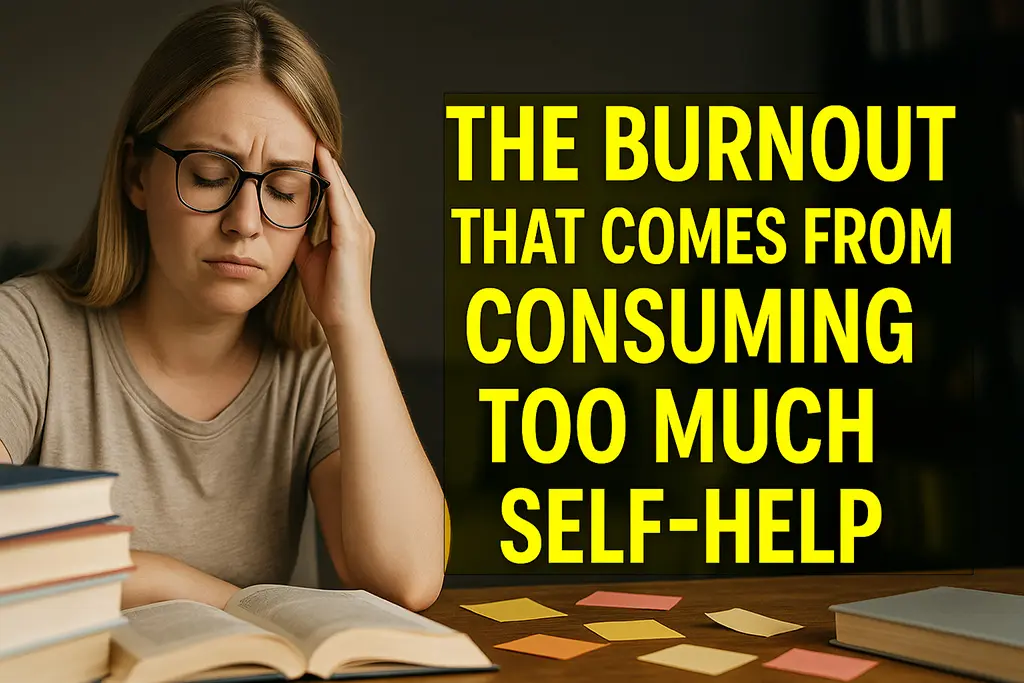




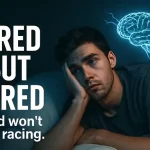





Leave a Reply